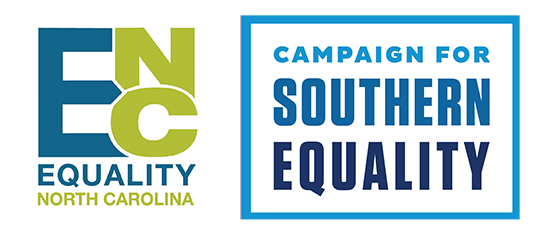Five Years After Global Backlash to HB2, Six North Carolina Communities Pass LGBTQ Nondiscrimination Ordinances
The passage of LGBTQ nondiscrimination protections in five cities and one county marks a dramatic turnaround for North Carolina, which made international headlines in 2016 for its unprecedented anti-transgender law.
Within a two-week span in January 2021, elected bodies in six communities in North Carolina passed local ordinances broadly protecting members of the LGBTQ community from discrimination. Each of the ordinances – in Hillsborough, Carrboro, Chapel Hill, Durham, Greensboro, and Orange County – passed unanimously. Durham and Greensboro are two of the five most populous cities in the state.
With the passage of these six ordinances, the population of North Carolinians protected from discrimination based on sexual orientation and gender identity jumped from 0% to nearly 7%. According to polling, more than 67% of North Carolinians support nondiscrimination measures.
Five years ago, when the city of Charlotte passed its own LGBTQ nondiscrimination ordinance, state lawmakers quickly preempted the measure with the infamous HB2, a first-of-its-kind legislative attack on transgender people. A global backlash followed: Businesses and events canceled an estimated $3.76 billion in investment from North Carolina; the U.S. Department of Justice filed a lawsuit against NC; and Governor Pat McCrory – a major champion of HB2 – lost his reelection bid, unable to overcome the political damage of the law.
HB2 was replaced in 2017 by HB142, which continued to preempt municipalities from passing local measures to protect LGBTQ people. That provision expired on December 1, 2020, paving the way for 2021’s new wave of local ordinances.
Kendra R. Johnson, Executive Director of Equality North Carolina, said:
"LGBTQ North Carolinians need protections on the federal, state and local levels, and we are heartened to see this local progress while we push for state and federal action. For far too long, North Carolina has lagged behind the rest of the nation when it comes to creating a culture where our most vulnerable can thrive, particularly Black, Brown, trans, and gender non-conforming folks. Now, lawmakers in the NCGA and in Congress need to look no further than this wave of local nondiscrimination ordinances to see that the tides have turned on this issue. North Carolina is ready for nondiscrimination protections, and it’s time to ensure that no LGBTQ person in any part of the state – or any other state – is left vulnerable to discrimination because of who they are.”
Allison Scott, Director of Impact & Innovation at Campaign for Southern Equality, said:
“The passage of LGBTQ nondiscrimination ordinances in North Carolina is a powerful refutation of the anti-transgender legacy of HB2 and HB142. I’m hopeful to see communities uniting to create inclusive policies because it says so much about how North Carolinians and Americans have opened their hearts and minds to transgender people. Five years ago, many Americans had hardly considered transgender people at all; now, they fight for our fundamental dignity as a core priority. As we approach the fifth anniversary of Charlotte doing the right thing by protecting LGBTQ residents from discrimination – and being cruelly punished for their bravery by the NCGA – I applaud the leadership of local elected officials. We call on other cities and counties, and ultimately lawmakers in Raleigh and Washington, to pass these critical protections.”
Equality North Carolina and the Campaign for Southern Equality, NC-based organizations that work toward LGBTQ equality, are supporting community members in calling for the passage of local ordinances across the state through a campaign called “NC is Ready” (www.ncisready.org). The organizations call on the NCGA and the U.S. Congress to enact statewide and federal nondiscrimination protections.
